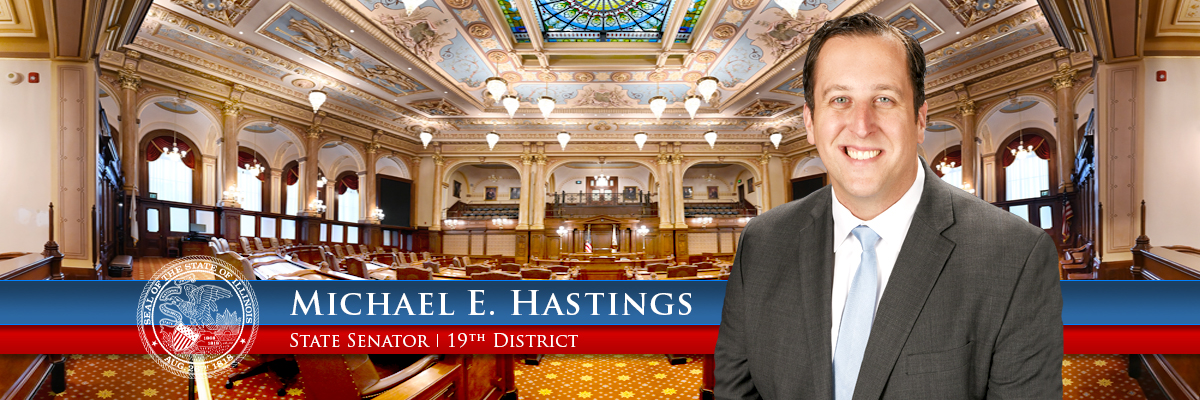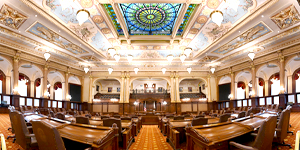- Details
- Category: Featured Stories
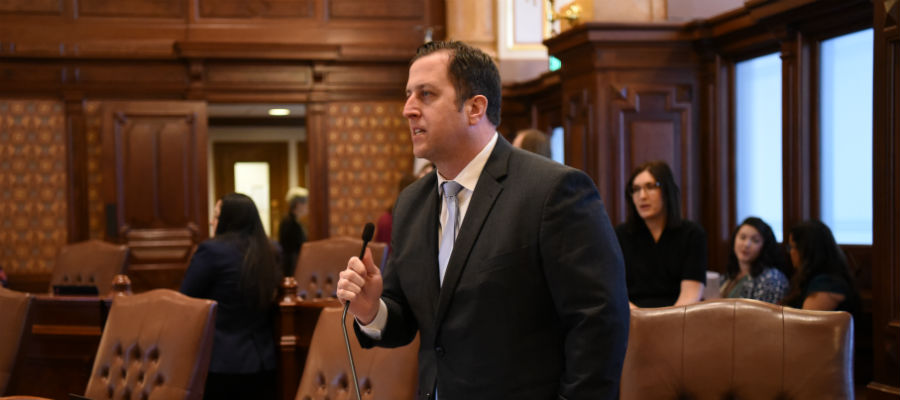 FRANKFORT – The Illinois Commerce Commission announced the decision to approve several consumer protection measures during the ongoing COVID-19 pandemic, several of which State Senator Michael E. Hastings (D-Frankfort) called for as leader of the Senate’s Energy and Public Utilities working group this past legislative session.
FRANKFORT – The Illinois Commerce Commission announced the decision to approve several consumer protection measures during the ongoing COVID-19 pandemic, several of which State Senator Michael E. Hastings (D-Frankfort) called for as leader of the Senate’s Energy and Public Utilities working group this past legislative session.
“Throughout March and April, I met with my colleagues on the Senate’s Energy and Public Utilities working group and numerous stakeholders. Our charge was very simple: we had to arrive at a solution to protect consumers,” Hastings said. “I’m thankful that Chairman Zalewski and the ICC listened to our recommendations allowing us to arrive at a helpful solution.”
Details of the comprehensive consumer protection package include:
- Extending the suspension of disconnections for 30 days beyond Illinois’ entry into Phase 4 of the Restore Illinois plan, or Aug. 1, 2020, whichever comes first;
- Flexible payment options once that time is up;
- Bill assistance for eligible low-income customers;
- Expanded fee relief.
This agreement covers several of the state’s major utility companies, including Aqua Illinois, Illinois-American Water Company, Utility Services of Illinois, Ameren Illinois, Nicor Gas, North Shore Gas Company, Peoples Gas and ComEd.
“I appreciate the cooperation of these companies and their dedication to their customers,” Hastings said. “They understand as well as I do that COVID-19 is not going to simply fade away, and even when it does, the recovery process will be difficult for so many. Extending moratoriums on shutoffs and providing additional financial relief is our moral obligation.”
- Details
- Category: Featured Stories
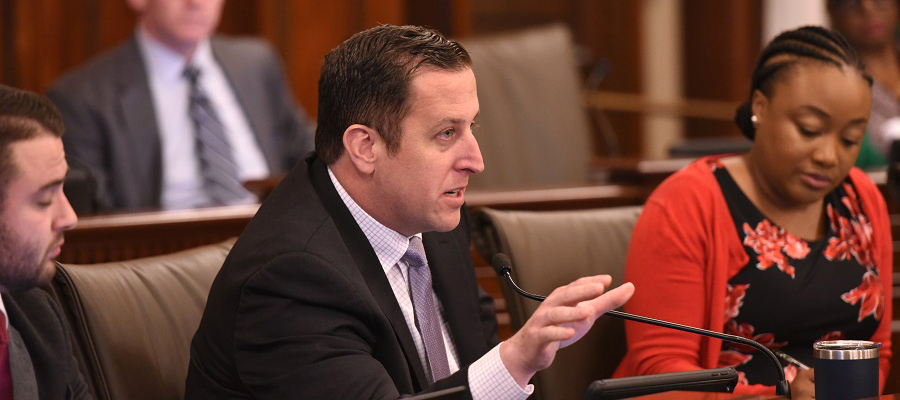
FRANKFORT – State Senator Michael E. Hastings is encouraging local business owners to take advantage of available grant money via the newly created Business Interruption Grant program.
“While the governor is assessing what a full reopening of these facilities could look like, these grants will provide sorely needed financial assistance,” Hastings said. “Restaurants can provide curbside service and many other businesses can deliver or use teleconferencing methods, but gyms are among those businesses that have had to sacrifice for public safety. I appreciate their efforts to do so, and I encourage local business owners to apply for these grants as soon as they become active in the coming days.”
The Illinois Department of Commerce and Economic Opportunity will disperse $10 million dollars in relief funding for 500 fitness centers. Additionally, $20 million will be allocated for bars and restaurants that have suffered losses due to COVID-19. In order to be eligible:
● All applicants must attest to experiencing costs or losses of at least $20,000 since the Stay at Home order was put in place on March 21, 2020 due to closure or reduced operations as a result of the COVID pandemic.
● A fitness facility must have made less than $2 million in revenue in 2019, or pro-rated revenue if in business for less than a year. Such businesses must have been operating for at least three months prior to March 2020.
● Businesses must occupy a gym facility. Health or fitness service providers that provide remote services or travel to different sites/client locations without a permanent establishment open to members are not eligible. Facilities must submit proof of client agreement or other evidence of operation as a fitness center.
● Eligible bars and restaurants will be those with under $3 million in revenue in 2019, or pro-rated amount if in business for less than a year. Business must have been an operating business for at least three months prior to March 2020.
● Grant award will be $20,000 for restaurants earning $2-3 million in revenue in 2019 and $15K for restaurants/bars earning less than $2 million.
● Only bars and restaurants that have not provided outdoor food and beverage service during Phase 3 will be eligible. This could be for any reason including prohibition by local ordinance, lack of access to outdoor space, or financial infeasibility.
Grants are given out on a first come, first serve basis, and will become available on Monday, June 22.
- Details
- Category: Featured Stories
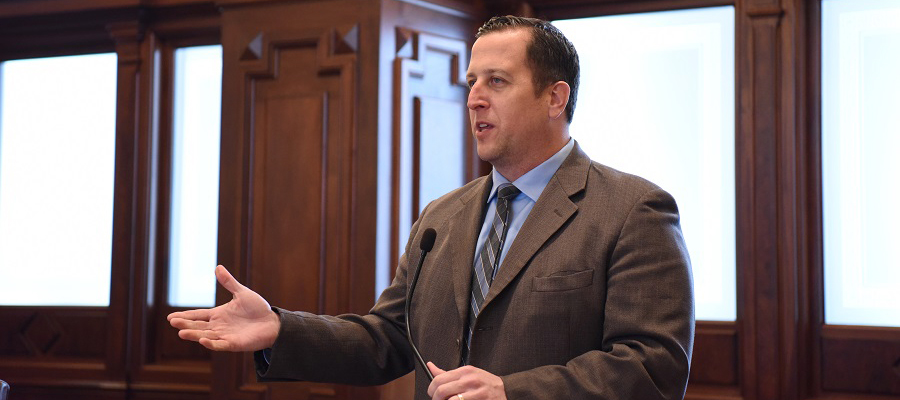
FRANKFORT – An expanded vote by mail program signed into law today will ensure Illinoisans can exercise their right to vote without compromising their health and safety, State Senator Michael E. Hastings (D-Frankfort) said.
“Though the state of Illinois has made tremendous strides in flattening the curve, it is not realistic to expect everyone will be comfortable with going to the polls this November,” Hastings said. “We had to take the health and safety of our people into account, and I feel we arrived at a commonsense solution to expand access to the ballot box.”
Under Senate Bill 1863 any person who has voted in the past two years — in the 2018 General Election, 2019 Consolidated Election or 2020 Primary Election — would receive an application for a vote-by-mail ballot in their mailbox. It can then be filled out and mailed to your election commission, or there will be instructions for making the request electronically.
Voters will also retain the choice to vote in person via early voting or on Election Day, which would be a state holiday for 2020.
“Those who feel comfortable voting in person should absolutely do so,” Hastings said. “The point of this legislation is to simply ensure no one feels pressured into unnecessarily putting their personal health and safety at risk.”
This legislation is effective immediately.
- Details
- Category: Featured Stories
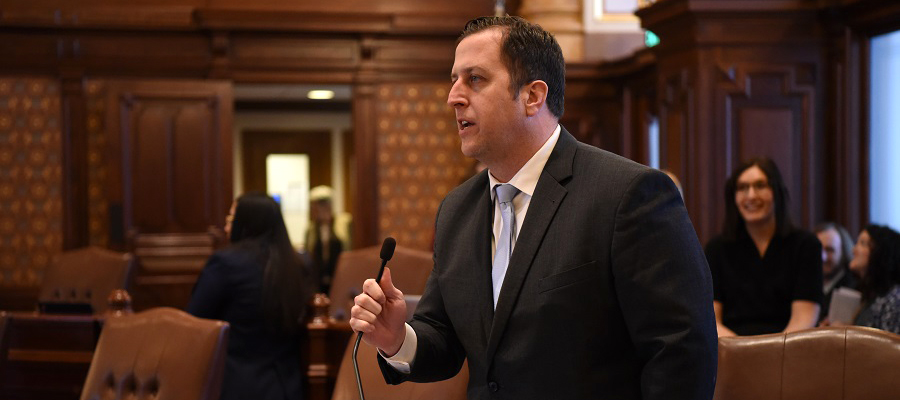
CHICAGO – As the world adapts to unprecedented change from coronavirus, a bipartisan group of legislators is urging state regulators to strengthen consumer protections to keep the lights on for residents and businesses turning to recovery in Illinois.
The Illinois Senate Energy Working Group, led by Chairman Michael E. Hastings, has sent a letter to the Illinois Commerce Commission urging the commission to adopt several reforms that would protect small and large energy consumers once Illinois emerges from the coronavirus shutdown.
The ICC has approved an emergency order preventing utilities from shutting off electric, natural gas, water and sewer service during the public health crisis, and it currently is considering proposals for protecting consumers for the following recovery period. The 13-member Senate working group, assembled to work on essential energy legislation from the pandemic, unanimously signed the letter supporting several proposals:
- Delayed shutoffs – Recommending a grace period of at least 60 days after the stay-at-home shutdown order is lifted before a utility can shut off a customer’s electric service.
- Delayed payments – Recommending a standard deferred payment arrangement between utilities and customers. All DPAs should be at least 12 months and extend to 18 months or up to two years after a certified financial hardship. If a customer defaults, they should be able to enter a DPA, the group suggests.
- Strong communication – Recommending following the end of this pandemic and any future public health emergency that utilities send clear, concise information in a letter to customers with past-due account balances. They should outline customer payment options and other programs to offer financial assistance.
“Our working group has discussed legislation filed in the 101st General Assembly and has determined that consumer assistance to residential, business and industrial customers post-moratorium is of the utmost importance,” the group wrote in its letter. “Understanding that residents of the State of Illinois will endure financial hardship following this pandemic, we ask that the Commission give strong consideration to the following topic areas before your administrative body.”
Hastings, D-Frankfort, said the letter affirms the consensus opinion of the bipartisan working group that policymakers must do all they can to support consumers during the challenging months ahead, and protecting them from electric shutoffs and payment defaults is an important step – one that could be taken legislatively if not acted on by the Commerce Commission.
“Our state has been thrown into chaos over the past two months, and our role as legislators is to step up and provide support that our constituents need in these uncertain times,” Hastings said. “I want to thank Sen. Sue Rezin, the Republican spokesperson, and the 11 other members of our working group for setting partisan squabbling to embrace these protections that will make a difference for Illinois consumers.
“We hope the ICC moves quickly to stand with us and give consumers the assurance the lights will be on as we all work to rebuild our lives and livelihoods.”
More information and resources to help people navigate the coronavirus pandemic can be found at coronavirus.illinois.gov.
More Articles …
- Hastings unveils plan to expand sick leave for airline employees
- Hastings: Property tax relief grants available for school districts in Matteson, Olympia Fields & Richton Park
- Hastings commends Gov. Pritzker’s message of investment, education, ethics reform
- Hastings congratulates newly elected Senate President Harmon
Page 7 of 12
